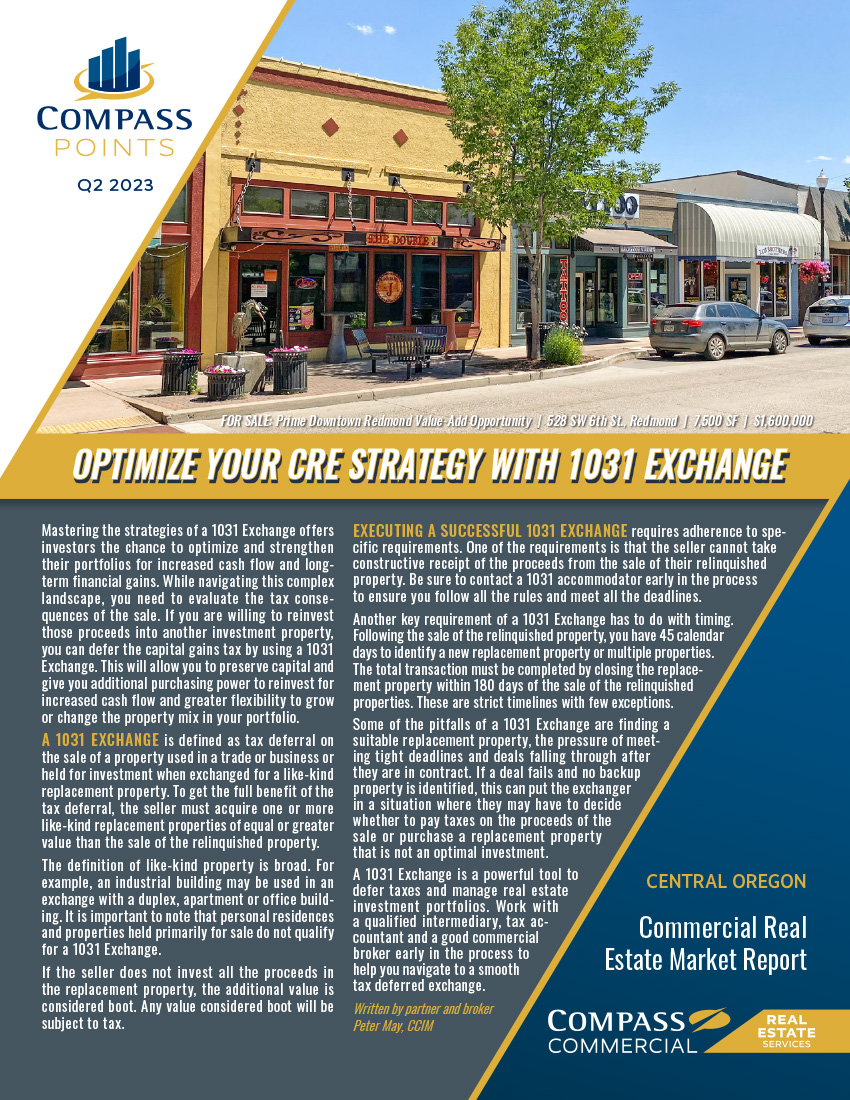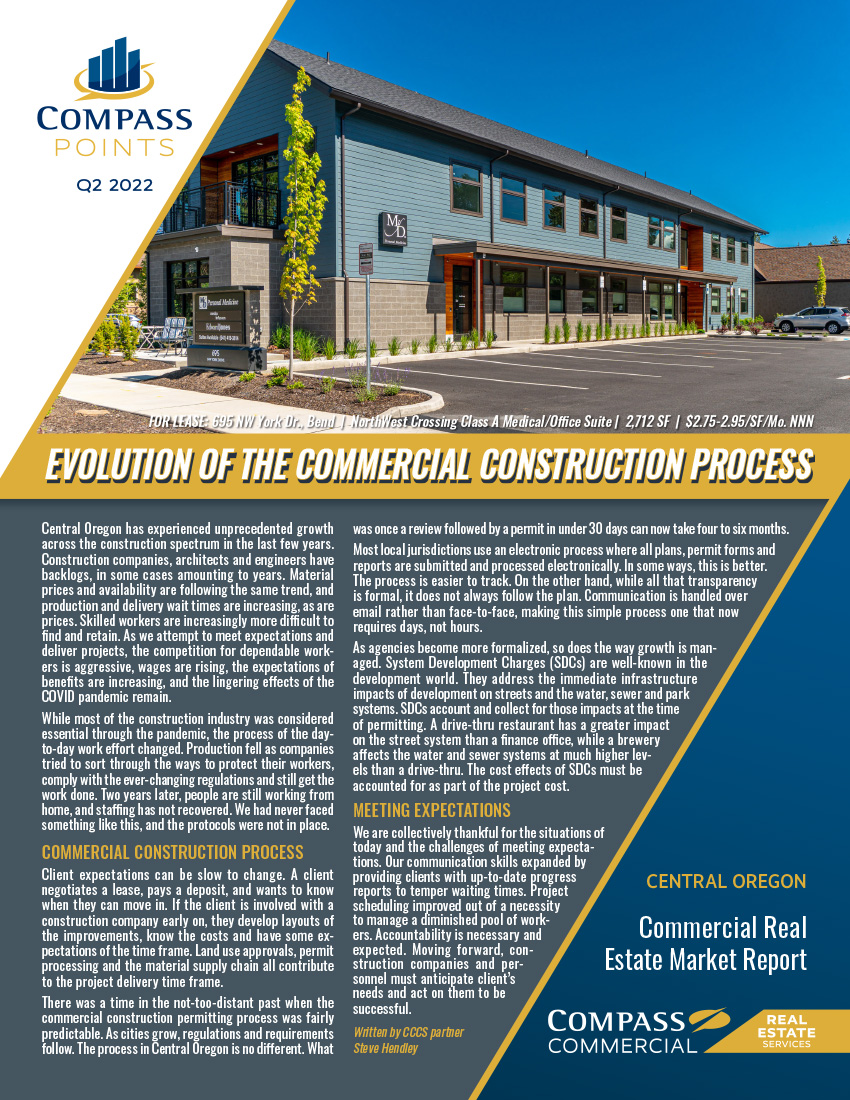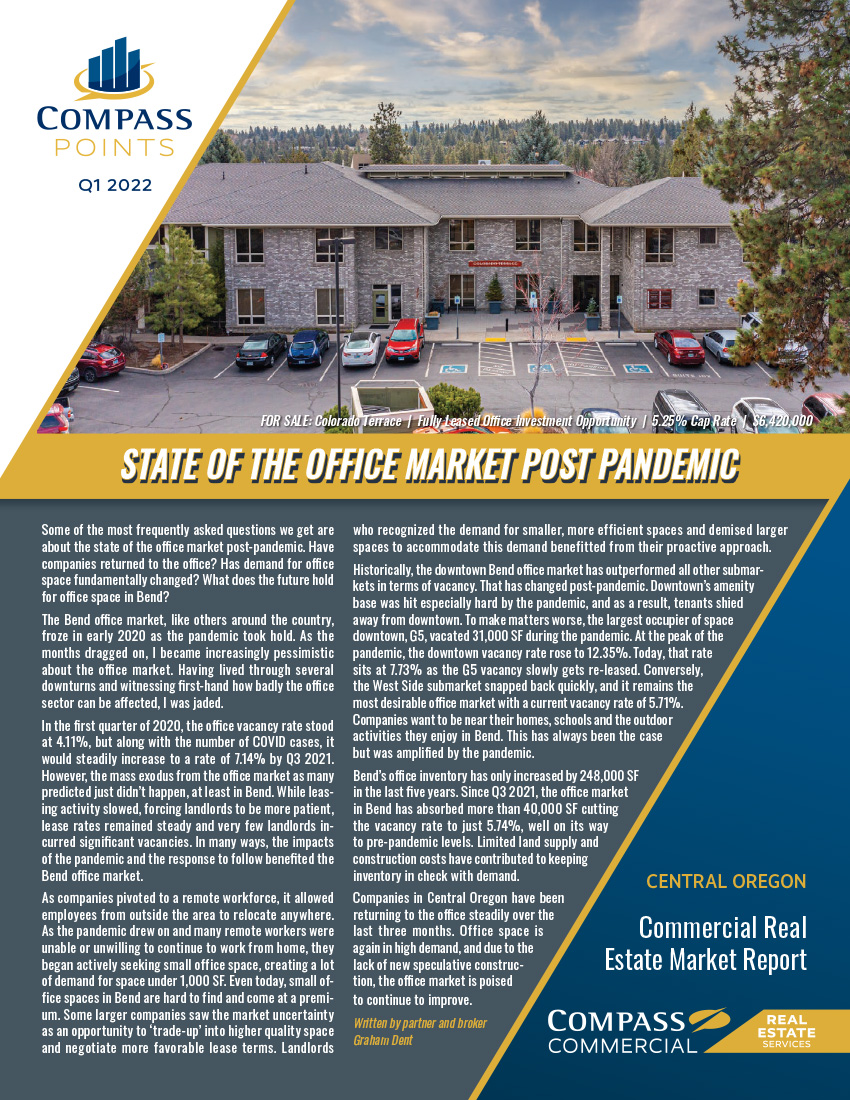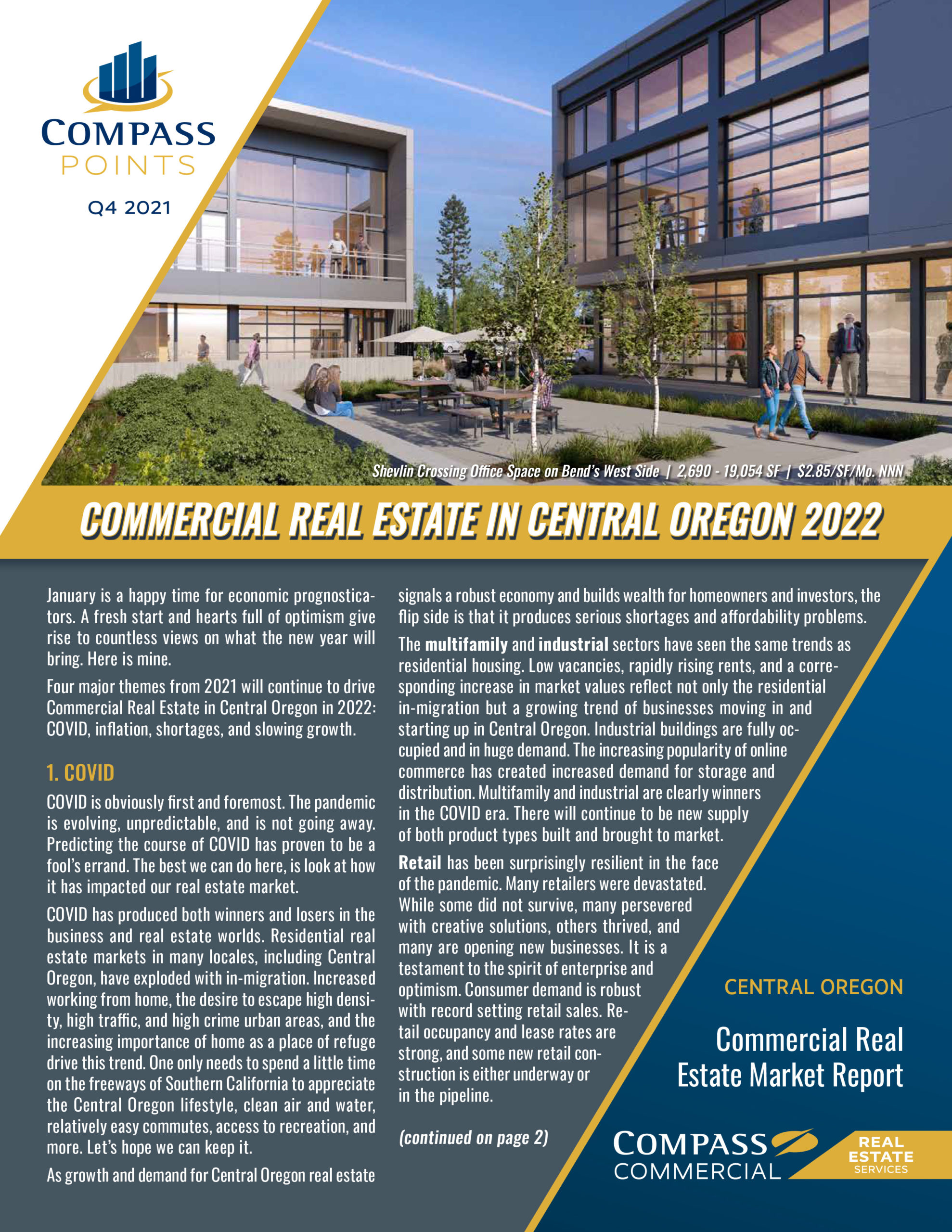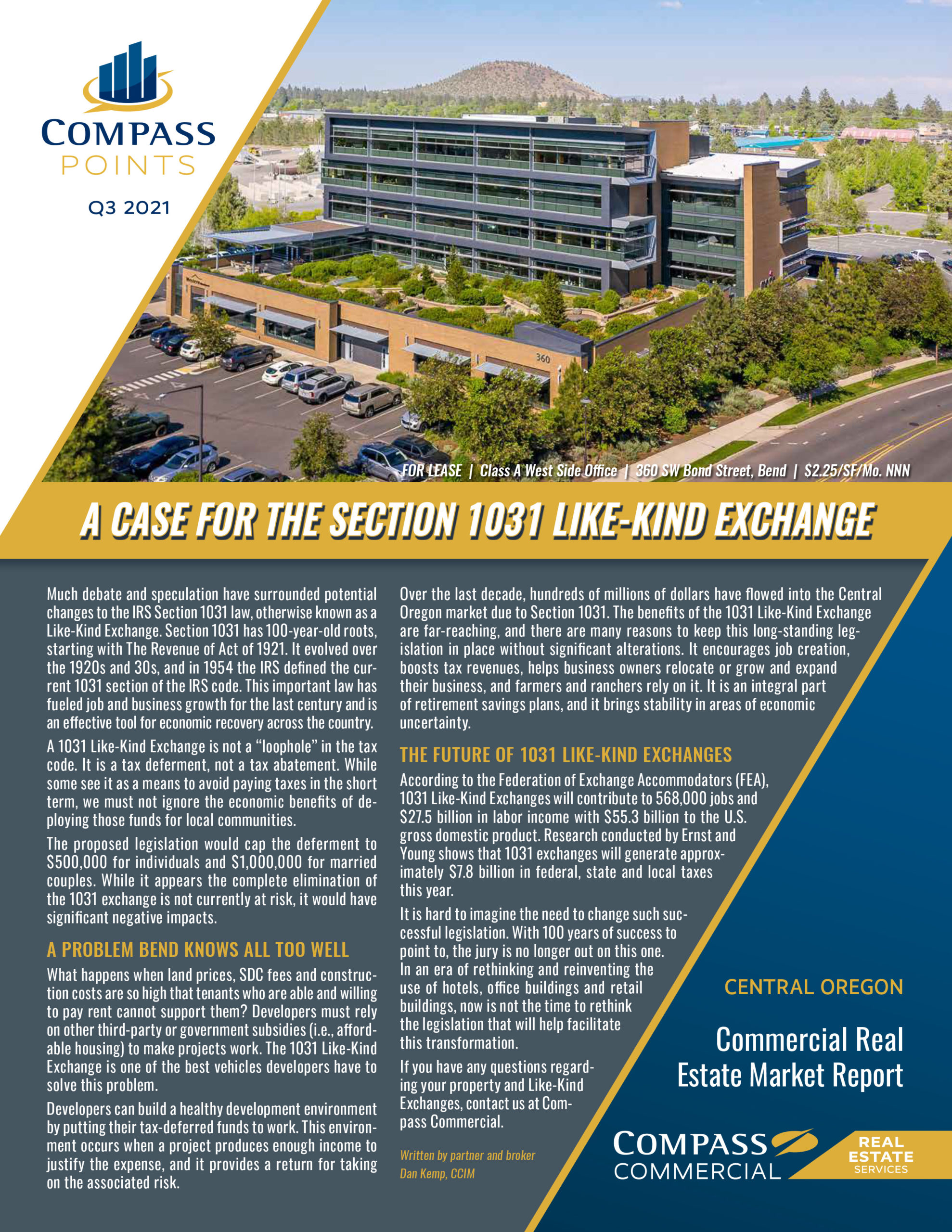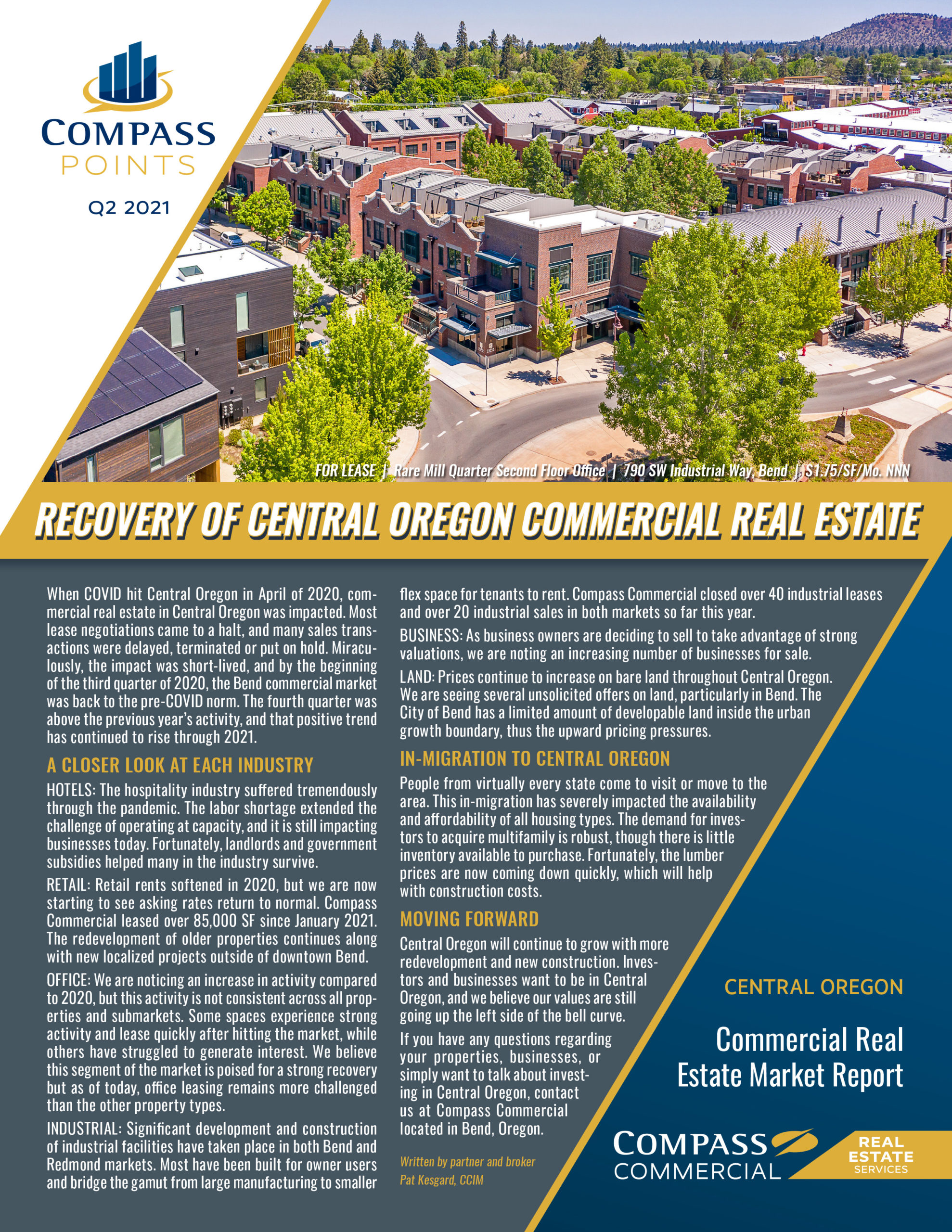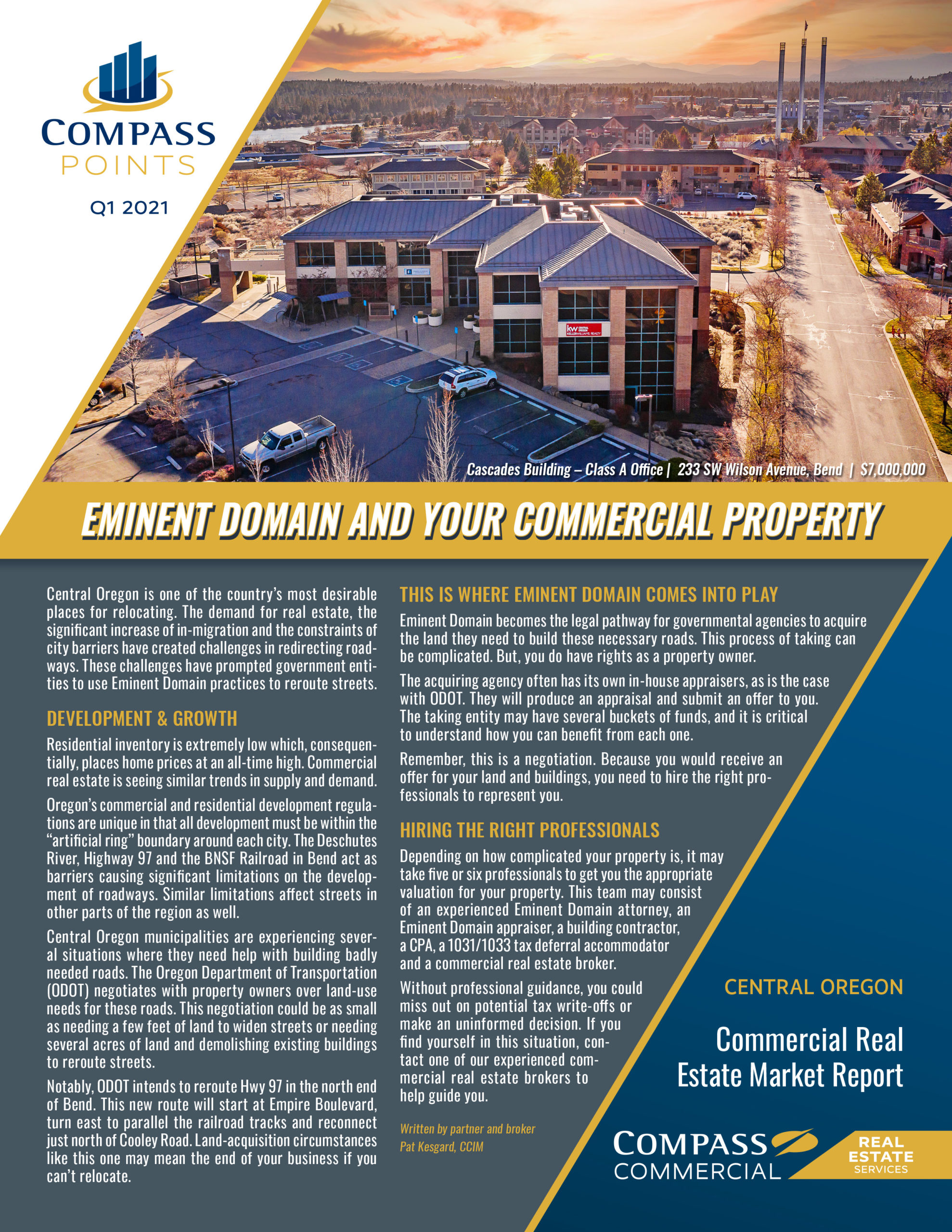Discover the advantages of professional commercial property management, from effective risk management and financial oversight to lease administration and facilities maintenance. Get your FREE comprehensive report on the Central Oregon commercial real estate market, including vacancy rates, absorption data, construction projects, and more.
Compass Commercial’s quarterly commercial real estate market reports date back as far as 1996 with digital archives existing for the last ten years. Contact us if you would like an archived issue. Interested in more commercial real estate news? Central Oregon Market Report
Central Oregon’s premier commercial real estate market report offers a comprehensive report of office, retail and industrial properties in Bend and Redmond, Oregon.

Navigating Commercial Property Management
Compass Points Q1 2024 Market Report Available Now!
Check out the Spotlighted Compass Points Q2 2023 Market Report as Featured on KTVZ!
Your comprehensive guide to Central Oregon’s latest market trends!
Past Issues
Sign up to get market reports, new listings, and more delivered to your inbox.


